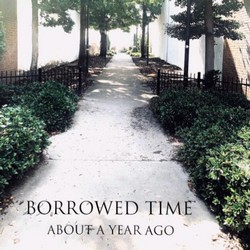Many shows have attempted to include diverse, neurodivergent characters in their show, such as The Big Bang Theory, The Good Doctor, and Sherlock. Whether movies or TV shows have done a good job at representing neurodivergent characters is up to debate. However, as we strive for more diversity, we see more neurodivergent characters on mainstream TV.
Like The Good Doctor, Atypical (2017) attempts to accurately reflect and explore the life of a neurodivergent teen and his coming-of-age story. Released in 2017, the United States, Atypical follows the life of Sam Gardner, a teenager on the autistic spectrum, and his academic, work, and personal life.
Sam’s endeavor to find who he is amidst adversity is commendable, and also very relatable. The show takes us through his tumultuous relationships with his family, a possible love interest, and his coworkers/friends. Sam navigates through these relational issues from a neurodivergent perspective that, many characters, simply struggle to understand.
Robia Rashid, the creator of Atypical, may also be recognized as the co-editor and co-producer of CBS’ How I Met Your Mother, and both shows have spectacular comedy in common. They also explore relationships, specifically family and love interests, in a way that is similar to real life.
Robia Rashid and Keir Gilchrist— who plays the main character Sam Gardner— prepared for the show with a lot of research. Rashid stated for Vulture, “…with an autistic teenage boy, I had to do a lot of real learning and listening to people. It was a voice that I had to learn, and once I started diving into this world, the voice came naturally. I would just write and the words would come out.” For any creator that attempts to write outside of personal experience, it is important that a lot of research is performed.
Keir Gilchrist also alluded to a lot of research in his interview with Variety in order to prepare for this role: “The book [The Journal of Best Practices: A Memoir of Marriage, Asperger Syndrome and One Man’s Quest to Be a Better Husband] ended up being a really big contributing factor in creating Sam’s character.”
Personally, I enjoyed the show with my younger brother who is also on the spectrum. I found it to be a dramaticized version of what can be a typical day at home. Though the subject felt personal and I was therefore very critical of it, I commend more neurodivergent main characters on TV.
As we become accustomed to seeing neurodivergent characters, I hope for more accuracy and less dramatization for the entertainment of neurotypical viewers. It is important that, as we diversity TV, we remain ethical about the groups of people we aim to represent.
I also enjoyed the themes of family and explored romantic relationships as a neurodivergent teenager, which for a long time was a taboo topic.
Lastly, I appreciate that many of the tough subjects were basked in comedy and familial love and support.
Atypical’s fourth and final season is streaming on Netflix now. The season is 10 episodes long and wraps up Sam and his loved ones’ character development in a wholesome way. As Atypical comes to an end, I hope it leaves a path for more diversity on TV, and we get to experience more neurodivergent characters. I also hope to see more from diverse writers like Robia Rashid, who is half-Pakistani half-white.
Representation has been a major factor in the social movements we see in our contemporary times, and characters like Sam Gardner are the beginning of, hopefully, many more diverse characters to come.



